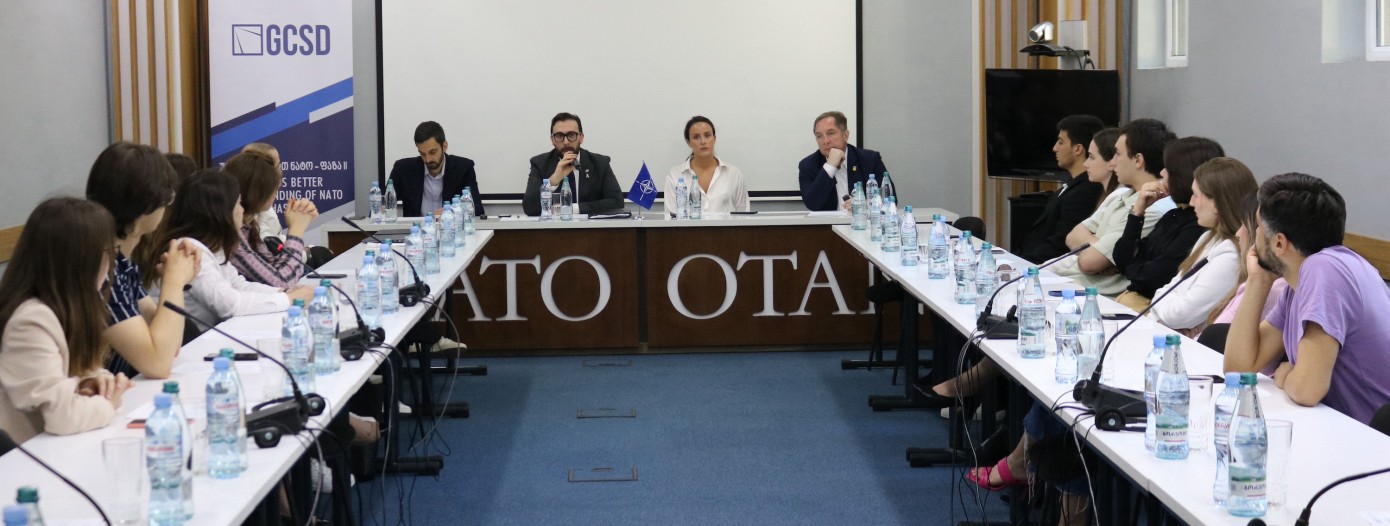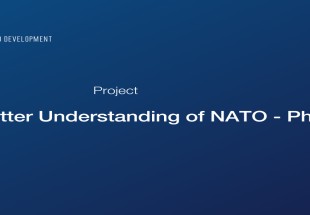NATO Youth Academy
Georgian Center for Strategy and Development (GCSD), within the framework of the project “Towards Better Understanding of NATO - Phase II”, implemented with the support of the NATO Public Diplomacy Division, conducted a 3-day training-session - “NATO Youth Academy”. The event was opened by the Director of GCSD, Mariam Tokhadze and the Head of the NATO Liaison Office in Georgia, Alexander Vinnikov.
On the first day of the session, Ambassador Alex Petriashvili introduced the history, mission and goals of NATO. Through an online session, Ms. Vineta Klein, head of the NATO Information and Documentation Center in Kyiv, spoke to the participants about NATO-Ukraine cooperation and support. Ms. Paula Redondo, Program Officer of the NATO Public Diplomacy Division, and Mr. Robin El Kady Data Scientist on the Information Environment Assessment team, presented NATO's disinformation policy and NATO's deterrence policy towards Russia.
Ms. Natia Gvenetadze, Senior Advisor of the National Security Council, presented the main achievements of the NATO-Georgia partnership in this direction. Mr. John Levitt, Secretary for Security and Foreign Policy at the British Embassy in Georgia, spoke about the role of NATO contact point embassies in the partner countries. As part of the course, Mr. Andro Gotsiridze, the founder of the Cyber Security Studies and Education Center, introduced NATO's approaches to cyber security.
After the theoretical part, on the second day of the training-course, the students had an in-person visit to NATO-Georgia Joint Traning and Evaluation Center (JTEC). The commander of the Center, Colonel David Gagua introduced the history, structure and mission of JTEC to the participants. Students asked questions, participated in the discussion and had the opportunity to observe the training process in the center.
On the third day of the training course, Major General Vakhtang Kapanadze spoke about Georgia's security challenges. The session was followed by a Crisis Simulation, led by Mr. Davit Dzidzishvili. Simulation enabled the participants to deepen their knowledge of NATO’s decision-making process and crisis management. Through this practical exercise, the participants developed and improved their leadership, communication and negotiation skills.
The course was hosted by the NATO Liaison Office in Georgia.




